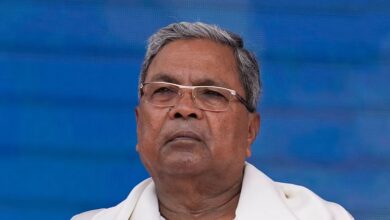Egypt's "Facebook Revolution" that toppled Hosni Mubarak last February may have been boosted by Internet social networking, but his downfall was inevitable anyway, a communications expert said Sunday.
"It was a people's revolution, accelerated, facilitated by the Internet," said Rasha Abdullah, associate professor of journalism and mass communication at the American University in Cairo (AUC).
Without social networks such as Twitter and YouTube, "it would have happened but much later." she said.
"Practically it helped people to organize," she added.
Abdulla was speaking at a conference entitled "Tweeting the revolution: how social media helped bring down a dictator."
"This revolution didn't start in 2011," she said. According to Abdullah, it accelerated with the introduction of blogs around 2003 in Egypt, before social media really began making its mark, she said.
She singled out videos posted after the year 2005 showing sexual harassment and police violence, as well as the formation of the "Kefaya" ("Enough") movement against at the Mubarak regime that same year.
Online appeals also played a great part in mobilizing strikes in early April 2008, leading to the creation of the April 6 Youth Movement, a driving force behind last year's revolution.
"The new thing in 2011, is instead of having demos of 20 to 200 people, all of a sudden they had masses of people," Abdullah said.
Gradually social networks created "horizontal communication" between Internet users talking to each other one-on-one, she said, and "gave them that sense of 'I have a voice, I'm entitled to speak and I will speak, this is my country.'"
She also said the Facebook page "We are all Khaled Saeed," which was dedicated to a young man beaten to death by police in Alexandria, played a huge role in sparking the revolution.
"The page that had the biggest effect. This page was instrumental, the first page in Egypt to have such a big number" of members, Abdullah said.
"It was a political page by nature. All the conversations on the page were political. When the call for the 25th of January came, almost half a million clicked on the 'I'm attending' button. That encouraged the people."
"There was momentum in the air," she said of Tunisia's uprising against president Zine al-Abidine Ben Ali. Conditions were ripe for a mass mobilization in Egypt.




